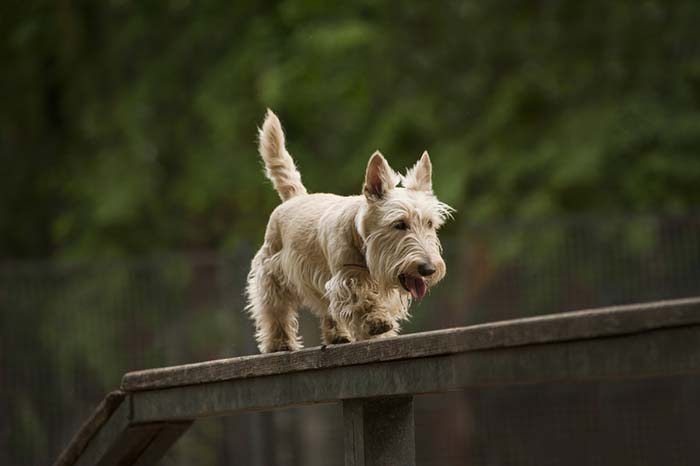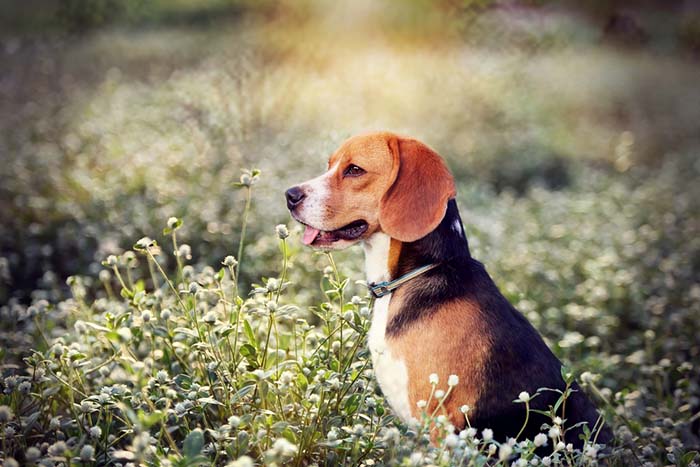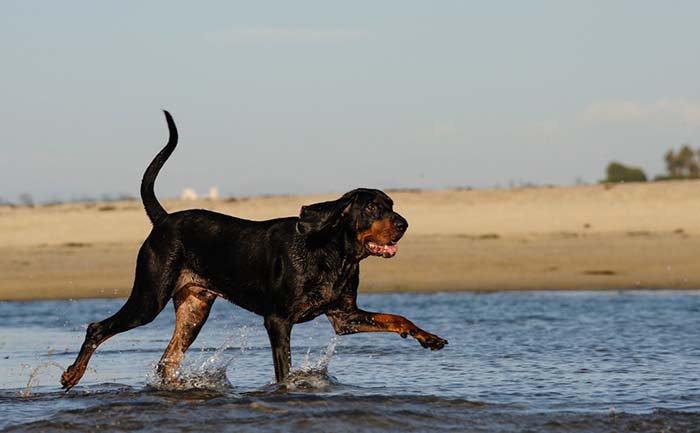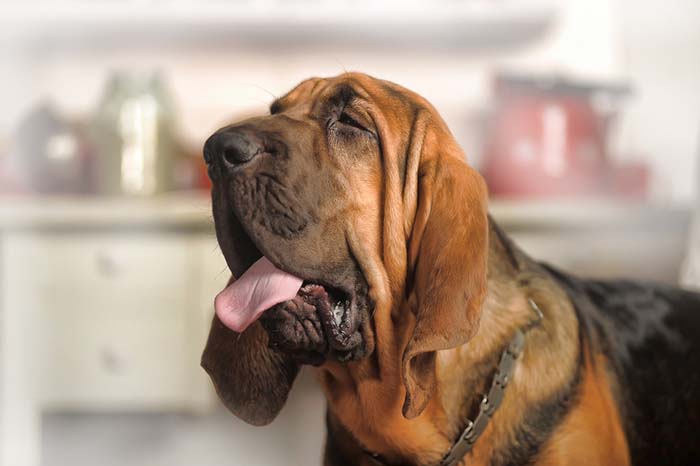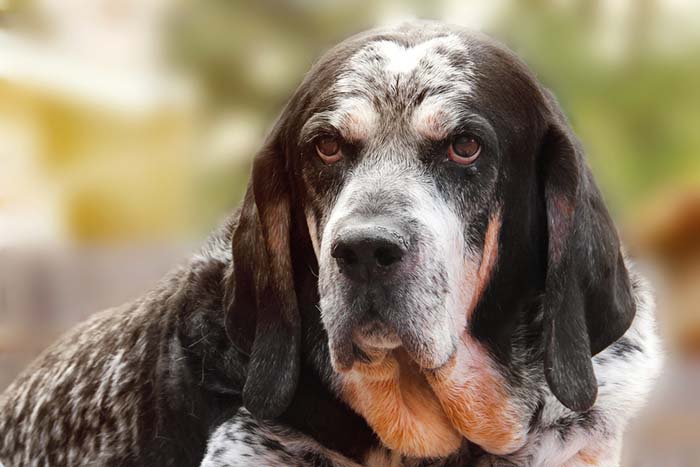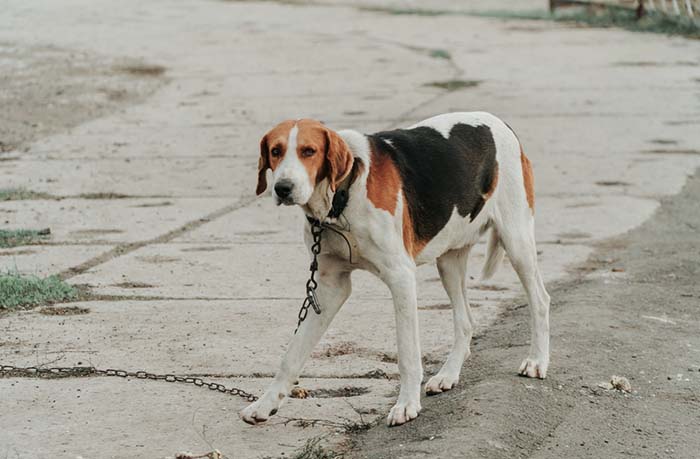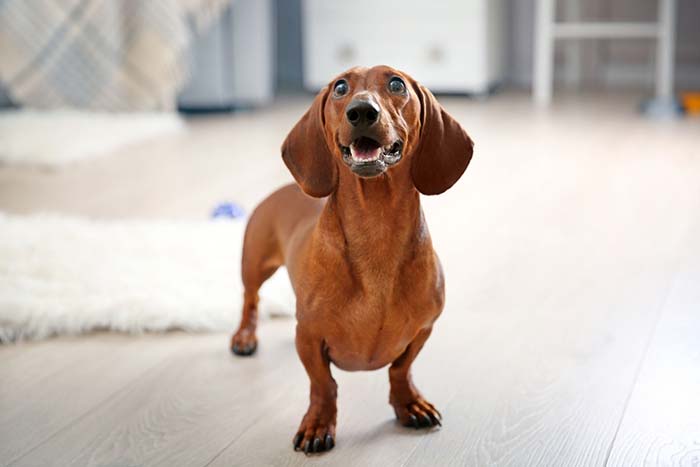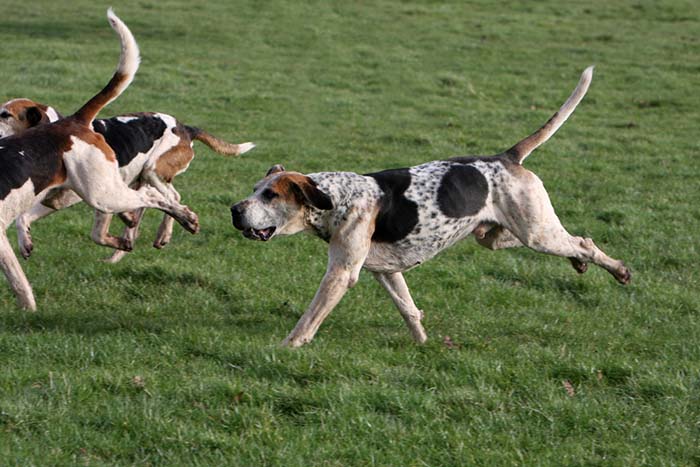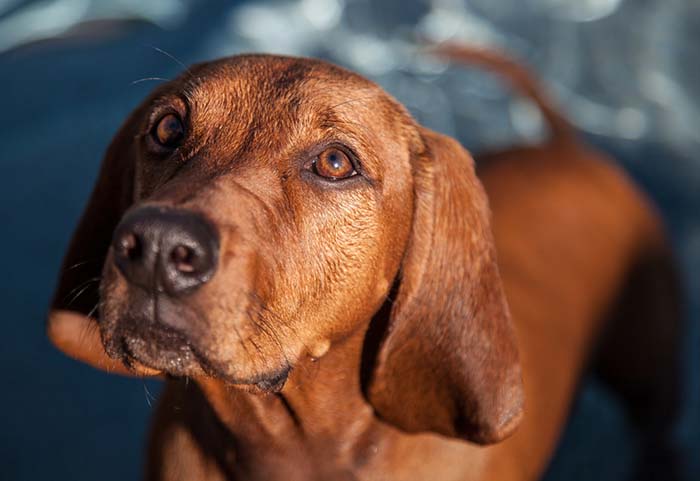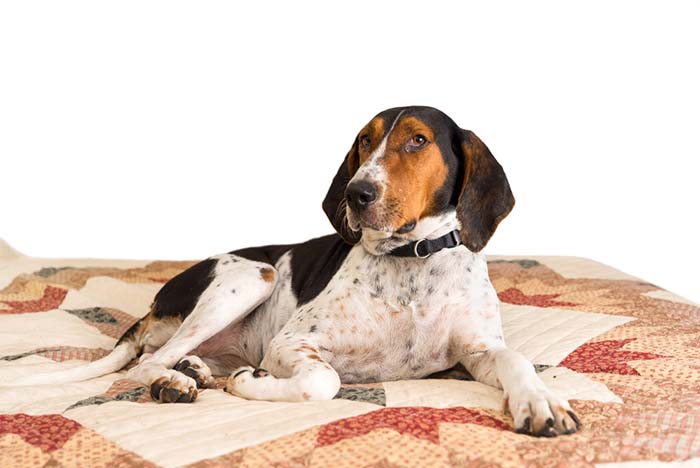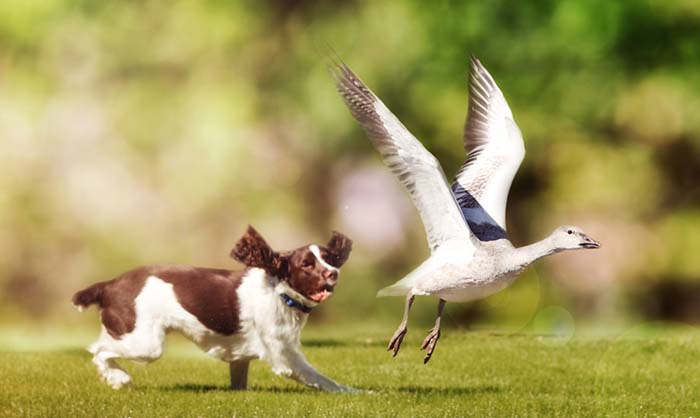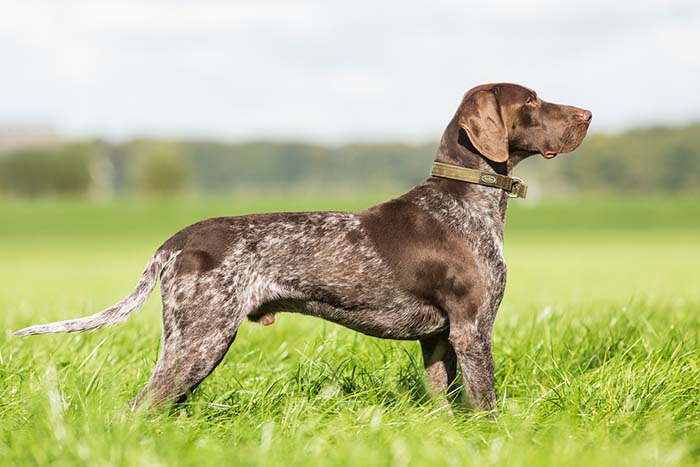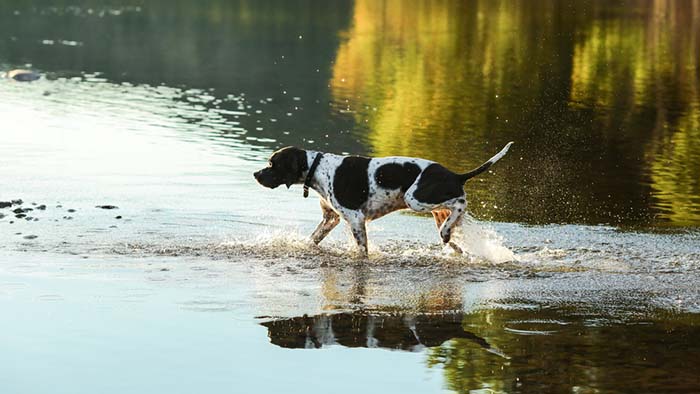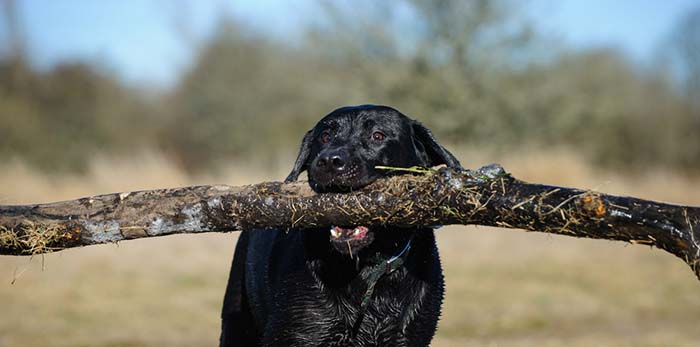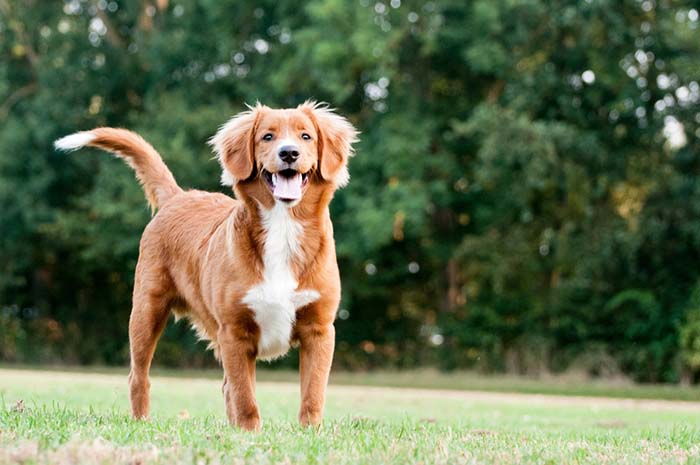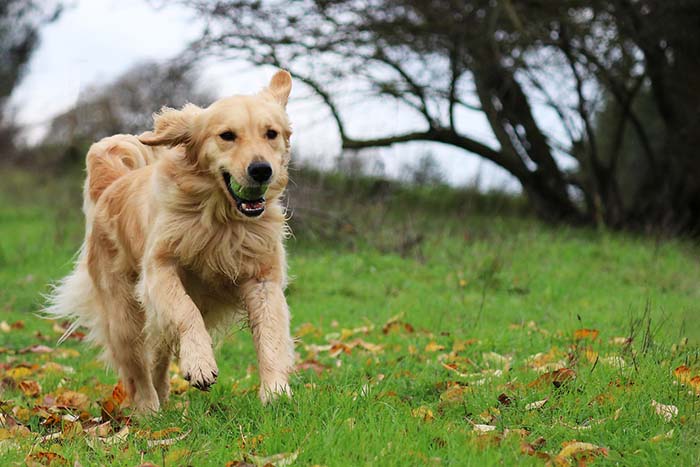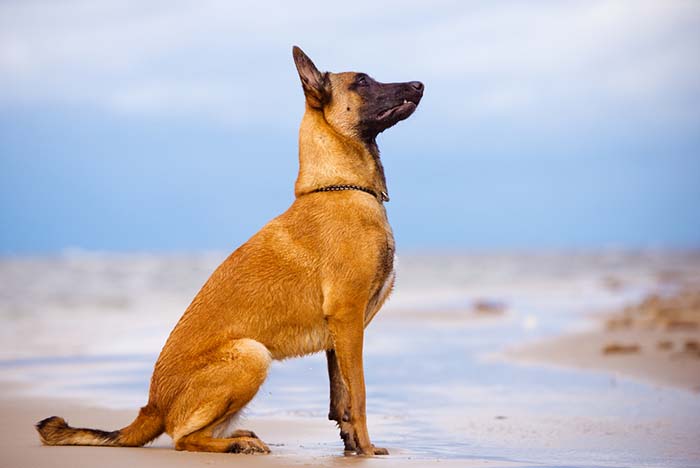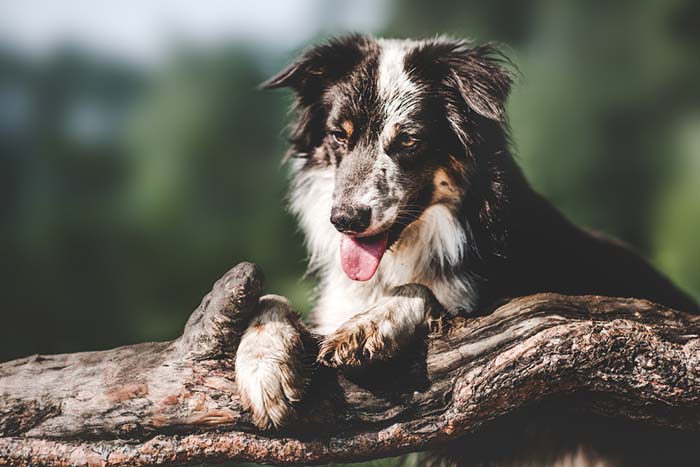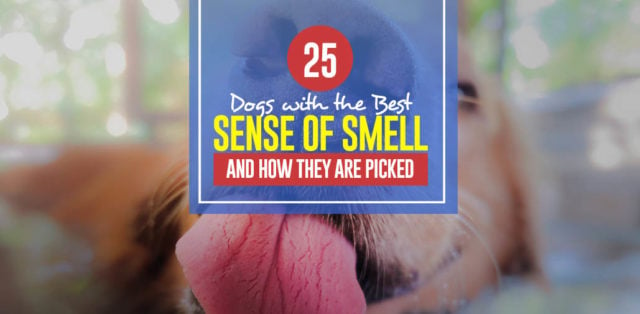
Table of Contents
We all know that dogs are famous for their sense of smell. Canines have approximately 300 million olfactory receptors in their noses, whereas humans only have about 6 million. But how do dogs compare to each other regarding their olfactory abilities, and can we pick dogs with the best sense of smell that are clearly better at this than others?
Yes and no. It's no secret that many breeds were bred for hunting, and their sense of smell was one of the major factors that caused them to be good at this task. It turns out scientists have already attempted to study dogs' sense of smell many times. They also compared dogs with the best sense of smell, breed by breed. In fact, they even compared them to wolves and picked out certain breeds that stood out.
A dog's sense of smell is one of the commonly studied subjects in canine research. Their olfactory abilities have been investigated more closely in the last decade and proven how dogs are extremely effective at detecting drugs and bombs, tracking animals and humans, and a lot more that depends on their sense of smell.
These tests were not flukes, too. Scientists were able to replicate these studies over and over, with many dogs with the best sense of smell proving over and over why they rank so high on the list. For example, in a 2003 study, Bloodhounds were given task after task that relied on their sense of smell and had a success rate of 96%. Similar things were replicated with many other breeds, most of which are considered hunting gun dogs.
Comparing dogs' olfactory capacities and sense of smell
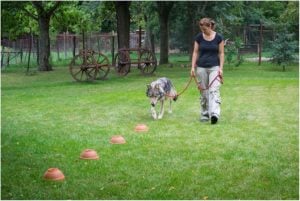
To this day, we still have no standard test to know the breed's olfactory capacity, and it hasn't been studied yet. However, in a recent 2016 study, researchers attempted to compare many breeds to see how they compare against each other in terms of their olfactory capacity.
They used a single group of wolves and three different groups of dogs:
- Dogs are well-known for their sense of smell;
- Dogs that have been bred for other tasks;
- Dogs with exaggerated short-nosed features.
Scientists were not surprised by the results of using five difficult levels during testing. Group #1, consisting of dogs that were bred for scenting work and are already well-known as dogs with the best sense of smell, scored the highest (alongside wolves), while groups #2 and #3 performed much worse.

The conclusion of the study was that it's possible to measure the dog's olfactory capacity and determine which breeds have the best sense of smell. There were no surprises during this testing, and researchers simply confirmed that (mostly) hunting dogs that were bred for tasks related to having a great sense of smell did indeed perform much better.
So, which dogs have the best sense of smell? Here are the 25 highest-ranking breeds listed in no particular order and ranked according to their subcategory. It may seem like all the dogs on the list are alike, but that is because most good-scenting dogs are also field, gun, and country dogs. These canines do have unique characteristics, and you should always fully research a breed before deciding on the one you will bring home.
ALSO SEE: 12 Types of Hunting Dogs and Which One You Need
25 Dog Breeds with the Best Sense of Smell
Terriers
1. Scottish Terrier
The “Scottie” dog is recognizable to almost everyone. Not only are they adorable, but they have a great nose, too. The Scottish Terrier breed isn't the one to often be associated with dogs with the best sense of smell, but in fact, it is.
Pros – The Scottish Terrier is lively and brave. He can smell an intruder from a mile away and will quickly sound the alarm.
Cons – While the excellent sense of smell is great for hunting vermin, it is also great for digging. When they smell something they want, they dig holes all over your yard until they find it.
2. American Staffordshire Terrier
An “Amstaff” has the brains and the muscle to do anything it wants to do. These traits, combined with a great nose, make the American Staffordshire Terrier an ideal choice for “search and rescue” operations, which is why this breed is becoming more popular among working dogs.
Pros – Hardworking, this pooch is great for competitions and sports. They do best in an active family with plenty of time to devote to them.
Cons – This canine’s stand-offish attitude and large size mean it isn’t a good choice for first-time dog owners.
3. Rat Terrier
Size doesn’t affect this compact breed and its ranking among the dogs with the best sense of smell. Rat Terriers are muscular, confident, and tenacious. Today, they are mostly companion dogs, but they can still hunt if needed.
Pros – Great for games of fetch and hide-n-seek, the Rat Terrier still retains a great sense of smell. It can even hunt down any unwanted creatures in the house.
Cons – These pooches are energetic. They were bred for work, and they still need “jobs” to do or a lot of play and exercise.
Hounds
4. Basset Hound
Traditionally used as a hunting dog, this four-legged friend is now putting its nose to work for search and rescue, police work, and therapy work. Basset Hounds are fantastic working dogs and have many traits which make them a perfect job companion.
Pros – The Basset Hound is a loving, gentle, and patient pet. They are great for families with children of all ages. They even like other dogs.
Cons – This dog’s nose can get it into a lot of trouble. Once it catches a scent, there may be nothing to stop it from following it. Make sure you have a sturdy fence and secure leash.
5. Beagle
They are mostly known for their happy, friendly demeanor and for being famous hunting gun dogs. But hunting isn't their only occupation. Beagles are also finding their way into more and more homes and jobs, being one of the dogs with the best sense of smell.
Pros – These pups get along with strangers, kids, and other dogs. They are athletic and make great small pets for the active, outdoorsy family.
Cons – Like other hound dogs, this canine is stubborn. While intelligent, it prefers to do things its own way. They are notorious for housebreaking difficulties.
6. Black and Tan Coonhound
An all-American breed, these pups were originally bred just to hunt raccoons – at night. With an excellent sense of smell, navigating dark conditions is no problem for a Black and Tan Coonhound, and they make great working dogs.
Pros – Friendly and outgoing, the Black and Tan Coonhound is a great choice for a family pet. These tough dogs tolerate weather extremes well.
Cons – This is an outside dog. It won’t be happy living in an apartment or not having a good-sized yard. They are happiest on the go.
7. Bloodhound
It shouldn’t be a surprise to see this breed on a list of best sniffers as the breed is one of the most well-known best-hunting dogs out there. The Bloodhound has long been famous for its keen sense of smell and determination when on the trail.
Pros – This canine has a reputation for being lazy. Nothing could be farther from the truth. They are active and enduring, which makes them great pets for parks and hikes.
Cons – While happy and friendly with everyone, their size means that they could hurt a small child without even realizing it. They need obedience training starting as soon as possible.
8. Bluetick Coonhound
Like all “Coonhounds”, this breed was designed to be a nocturnal hunter because of its skills and being one of the dogs with best sense of smell. Like most hunting breeds, the Bluetick Coonhound loves outdoor activities.
Pros – The Bluetick Coonhound is a rugged, healthy breed that loves the outdoors. They are a little more reserved than other hound dogs and make a good watchdog.
Cons – Although they are outdoor dogs, they need daily interaction with people to avoid becoming noisy and destructive.
9. Harrier
A Harrier looks like a large Beagle and is about the same in temperament and ability. While not as popular in the USA, it is a very popular dog breed in the UK and British Isles, where it is the top hunting breed for Ireland.
Pros – While they love being a working dog, they are loving and make great house pets as long as they get plenty of exercise and mental stimulation.
Cons – A true hound, the Harrier is independent, stubborn, and determined. They need experienced, consistent, positive-based training to mind their humans.
10. Dachshund
While these pint-sized hunters were bred to hunt small game like badgers and rabbits, they were also used in packs to trail wild boar. They may be one of the more unexpected entries on the list of dogs with the best sense of smell, but they will quickly prove you wrong.
Pros – The loving, laid-back dachshund makes a wonderful family pet. Their bravery and spunk make them an entertaining companion, as well.
Cons – The long back of these four-legged friends makes them susceptible to joint damage and other issues. If you want to take one of these homes, make sure you don’t have a lot of stairs.
11. English Foxhound
A rare breed, the English Foxhound is seldom seen as a family pet. Because of them being one of the dogs with the best sense of smell, they were bred for specific tasks. Today, they still prefer the hunting life in a pack with other dogs.
Pros – A great nose is not all that makes these pooches prized for hunting. They are also fast, strong, and brave. You will usually see members of this breed in a pack leading a group of hunters on horseback.
Cons – Not recommended for house life. These rambunctious dogs need room to run, things to chase, and a life that allows them to bay, bark, and howl freely.
12. Redbone Coonhound
Known and prized for their ability to sniff out the trail, these deep red hunters are also fast and agile. A Redbone Coonhound‘s sense of smell, enthusiasm, and surefootedness make this breed great for rocky terrain work.
Pros – Eager to please and devoted, this breed is easier to train than some other hound dogs. Fast, energetic, and enduring, they are great companions for runners and joggers.
Cons – While adaptable enough to live in an apartment, they need a lot of exercise – at least two long, brisk walks a day.
13. Treeing Walker Coonhound
While the name may be cumbersome, it is a direct nod to this dog’s abilities. Famous hunters and one of the well-known dogs with the best sense of smell, Treeing Walker Coonhounds were bred and trained to send prey scurrying up a tree and keep them there until the people with the guns arrived.
Pros – Another hound that is easy to train, the Treeing Walker Coonhound, isn’t just for sniffing out prey. They make a good watchdog as well.
Cons – The suspiciousness of strangers that makes them a good watchdog also means they need obedience and socialization training to avoid becoming too fearful or aggressive.
Sporting Dogs
14. Irish Water Spaniel
The curly coat and skinny tail of this pooch make it instantly recognizable. Similar in looks to a Poodle, the hair of Irish Water Spaniels helps them in their favorite pastime – swimming, hence their name. But this breed also has great olfactory senses, making it a perfect hunting companion.
Pros – This is an all-around hunting dog. The Irish Water Spaniel can track, point, retrieve, and hunt. Friendly and affectionate, they also make great family pets.
Cons – This is a rare dog. If you want one, plan to wait for a while on a list. Many “fakes” are out there, so do your homework before forking over the cash.
15. English Springer Spaniel
Unlike a lot of sporting and most active breeds, the English Springer Spaniel is eager to please and easily trained. It uses its nose to locate game fowl and flush (spring) it out, and with the majority of other Spaniels, it's one of the dogs with the best sense of smell.
Pros – Popular on the trail and in the home, there are two variations – an outdoors, energetic type, and an indoors, calmer type.
Cons – These family-loving animals become noisy and destructive if left alone for too long. Even if you have the calmer variety, they still need to get outside frequently to play.
16. German Shorthaired Pointer
Developed in the 1800s, the original breeders wanted a dog that could track, hunt, point, flush, and retrieve. When the German Shorthaired Pointer, or “GSP,” was finalized, they stopped as their work had been fulfilled in this versatile dog breed.
Pros – German Shorthaired Pointers are highly trainable due to their intelligence and willingness to please. Devoted and loving, they make great pets for active families.
Cons – The intelligence of these pups is a double-edged sword. They are lifetime learners and need mental and physical stimulation to avoid having behavioral problems.
17. English Pointer
Probably the most expected entry on the list of dogs with the best sense of smell, English Pointers are known for their sniffers. These active pups are best suited for life in the country, where they can play and roam all day.
Pros – Affectionate, friendly, intelligent, and easy to train, there are a ton of “pros” when one is talking about the English Pointer.
Cons – Canines of this breed are sensitive. They need an experienced trainer who knows how to effectively train without being overly negative. They can be destructive and loud if left alone for too long. They are rugged outside dogs that still need human companionship.
18. Labrador Retriever
Everyone knows a Lab because this breed is the most popular dog in the United States according to official rankings and has held that title for 26 years. Their dependability and trainability make them the leading dog for guide work and search and rescue.
Pros – It would be a tough search to find a fur baby as easy to train and as loving as a Labrador Retriever. Their nose may have put them at the top of the hunting dog category, but their disposition is putting them at the top of the companion dog list, too.
Cons – While Labs are popular, they are still not for everyone. They shed quite a bit. They also are full of energy. They need a couple of good walks a day or a large yard to play in. These charmers need to be kept busy, or they will chew up everything.
19. Nova Scotia Duck Tolling Retriever
Along with a good nose to sniff out the prey, the “Toller” also has webbed feet to effectively retrieve its prey from the waters. It's one of the least popular dogs out there, but the Nova Scotia Duck Tolling Retriever easily deserves entry on the list of dogs with the best sense of smell.
Pros – Hardy and healthy, the Nova Scotia Duck Tolling Retriever was bred for icy waters, but they do pretty well in the heat, too.
Cons – Like other working-class dogs, this four-legged family member likes to be outdoors staying active. If you don’t provide the fun, they make their own by digging holes and tearing stuff up.
20. Golden Retriever
Well-known for constantly being in the top three ranks of most popular dogs in the world, the Golden Retriever has been a favorite for decades. Not to be mistaken for a “yellow Lab,” it is its own breed with its own set of skills and abilities.
Pros – Friendly, intelligent, and devoted are the traits that make up these hunting dogs. They are family dogs that love being in a pack of other dogs, too.
Cons – The “Golden” has wavy hair that needs to be brushed bi-weekly to avoid matting. They love to eat and will pack on the pounds if they are allowed to eat how much they want to.
21. Chesapeake Bay Retriever
This strong, independent working dog can use its nose for many things in the field, including sniffing out bombs. Given how it's a very popular breed among hunters, it's no surprise that it ranks among the best dogs with the best sense of smell.
Pros – This double-coated four-legged family member is tough. They can plunge into icy waters and chase down prey in tropical climates. Loyal and protective, this hunting dog can do double duty as a guard dog.
Cons – Although these dogs are physically tough, they need time to bond with their people. A “Chessie” is not comfortable with strangers or other animals. They need obedience training and lifetime socialization to avoid aggressiveness.
Shepherds
22. German Shepherd
Second in popularity only to the Lab in America's rankings, the German Shepherd (or “GSD”) is a great all-around dog that proves itself by sniffing out bombs and drugs and playing the family dog. It's one of the most popular police dogs today.
Pros – Healthy and intelligent, these pups are great as companion dogs and working dogs. They work not only for police departments but also as search and rescue and service dogs.
Cons – A popular guard dog, the “GSD,” was bred by some for aggression. Make sure your new puppy comes from a reputable breeder to avoid aggressive qualities.
23. Belgian Malinois
While the German Shepherd is the most popular dog for police work, the “Mal” is fast taking its place. The Belgian Malinois breed is one of the dogs with the best sense of smell and is being trained for police work all over the world.
Pros – Intelligent, loving, and easy to train, this is a great dog for work or play. They shed little and are rugged and versatile.
Cons – Like other dogs that are reserved and stand-offish, The Belgian Malinois needs training and daily attention to avoid becoming aggressive and destructive.
24. Border Collie
One of the smartest dogs out there, Border Collie is prized for its herding ability and ability on the obstacle course, and it's one of the dogs with the best sense of smell and inedible capacity for learning, improving, and following handler's directions.
Pros – The Border Collie can be trained to do anything. This, combined with their high sense of smell, agility, and obedience, makes them another favorite as a tracker in search and rescue and a locator of bombs and drugs.
Cons – Athletic and energetic, these dogs are for outdoors people. They need to have activities for their body and mind, or they will become bored and destructive.
25. Collie (Rough and Smooth)
The intuitiveness of this fur baby is legendary. Collies aren't just great dogs for kids and families, but they have the ability to sense what is needed and then act accordingly. There are two varieties, the Rough and the Smooth Collie, but they share many of the olfactory characteristics that fit them onto the list of dogs with the best sense of smell.
Pros – The Collie is a playful, friendly dog. They do great with kids. While this is true, they are nevertheless wary of strangers approaching their charges.
Cons – The fur babies in this breed shed a lot and need frequent brushing. They like to bark and chew and will need training to avoid them becoming a nuisance.
READ NEXT: 14 Best Watch Dogs & Breeds That are Good Guard Dogs
Pin and share with other dog lovers:


